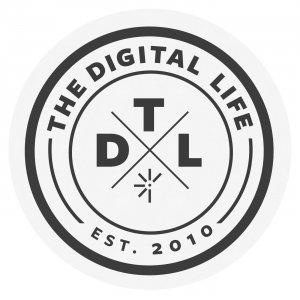The Digital Life

Seeing Through Digital Haze
Jon: Welcome to episode 182 of the Digital Life, the show about our insights into the future of design and technology. I'm your host Jon Follett, and with me is founder and co-host Dirk Knemeyer.
Dirk: Greetings listeners.
Jon: The podcast this week, we'll be discussing digital influence in the wake of this election cycle. From WikiLeaks, to Hillary's email server. Fake news on Facebook, to digital online tribes of like thinkers, in this election cyber communication has matured into a mammoth force. I think that's putting it lightly. Facebook has been accused of helping to spread misinformation and fake news stories that may have influenced how Americans voted, and the social network is internally having discussions about what their responsibility is to vet news items that come across their site.
WikiLeaks of course released thousands of hacked internal DNC emails right before the Democratic National Convention, and those emails showed that officials in the DNC were actively undermining Bernie Sander's campaign in favor of Hillary Clinton's campaign, and then later on WikiLeaks also published hacked emails reportedly from John Podesta, who is the Clinton campaign chair person. Of course these emails included transcripts of Clinton's controversial speeches before Wall Street firms, ALA, Goldman Sachs, and of course the timing on all of that, those transcripts were of course released just a month before election day.
We can see here that information warfare, or cyber war hacking, this ebb and flow of information and misinformation is all making it a very hazy picture of our online digital lives. As American's are consuming more and more media online, this is a serious concern I think because it says that not only are we not able to discern necessarily what's real and what isn't, there's sort of parties actively creating propaganda, or at least trying to push our thoughts in one way or another. We've spoken about this in the past, but I'm completely startled by the fact that sort of the cyber punk novels of William Gibson seem to get this down to a tee decades before any of this became real.
I think this election is notable so far as the influence of online information has never been stronger.
Dirk: Yeah.
Jon: For better or for worse, the information online has definitely come of age. Dirk your thoughts on that mess?
Dirk: Yeah, I mean it's certainly true. What the examples you sighted all have in common is that they impacted or said to have impacted the election. The examples themselves are pretty far flung, so maybe let's take them sort of one at a time. Is there one you'd like to start with?
Jon: Sure, let's start with WikiLeaks just because it's sort of fascinating what's possible when you start seeing the sort of dirty underwear of our electronic communication. I think the question in part is, "Are we really all that interested in total transparency, or does that become just another political tool in the toolbox?"
Dirk: Yeah. No, we're not interested in total transparency because we have created these myths and legends around reality that simply aren't true. The fact is the human fight for power at scale is ugly. It's ugly. If you are trying to be the leader of a nation, of hundreds of millions of people, that is not going to be a fair fight. It wasn't in 1790's when the first U.S. presidents were being elected, and it isn't today at the much larger scale. The people in power want to keep power. The people going for the power will do whatever they can to get the power. From a more primitive viewpoint, I would take the position of saying, "They should," right? I mean, the stakes are high. If you're the president of the United States you can do a lot. A lot to the world, a lot to your personal and families financial position, a lot to forwarding the beliefs that you have. Look, I mean we can't ... I don't know that we can culturally approve dirty dealings, and fighting, and so forth.






 Visit Podcast Website
Visit Podcast Website RSS Podcast Feed
RSS Podcast Feed Subscribe
Subscribe
 Add to MyCast
Add to MyCast